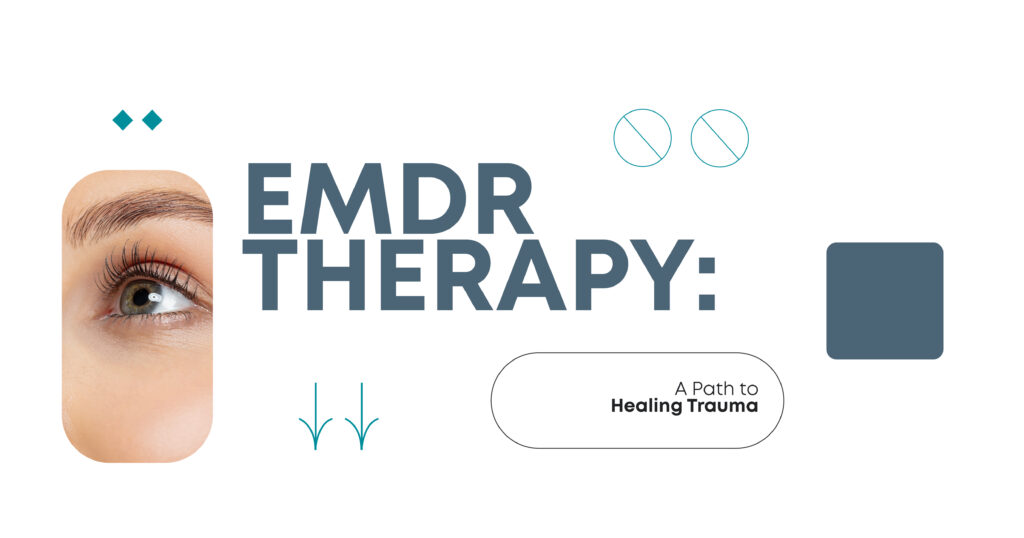In today’s fast-paced world, the impact of trauma on mental health is increasingly recognized. From childhood experiences to adult hardships, unresolved trauma can manifest in various ways, affecting daily life and relationships. Eye Movement Desensitization and Reprocessing (EMDR) therapy emerges as a transformative approach to healing trauma, offering hope and relief to those who have suffered. This blog explores what EMDR therapy entails, its benefits, and how it can be a path to profound healing.
Understanding EMDR Therapy
EMDR therapy is a structured psychotherapy approach that helps individuals process distressing memories and alleviate the emotional distress associated with them. Unlike traditional talk therapy, EMDR incorporates bilateral stimulation, such as eye movements, taps, or sounds, to facilitate the brain’s natural healing process.
Mental Health Center of San Diego
How Does EMDR Work?
- Phases of EMDR: EMDR therapy typically involves eight phases, beginning with history-taking and ending with evaluation. Each phase aims to address different aspects of trauma processing and integration.
- Bilateral Stimulation: This technique helps activate both hemispheres of the brain, aiding in the reprocessing of traumatic memories.
- Accessing Adaptive Information: EMDR enables individuals to access and integrate adaptive information to promote healing and resilience.
Benefits of EMDR Therapy
EMDR therapy offers a range of benefits for trauma survivors, making it a highly regarded treatment option:
- Effective for Various Types of Trauma: Whether stemming from childhood abuse, combat experiences, or natural disasters, EMDR has shown effectiveness across different types of trauma.
- Speed and Efficiency: Many individuals experience significant relief in fewer sessions compared to traditional therapy methods.
- Reduction in Symptoms: EMDR therapy often results in a reduction of PTSD symptoms, including flashbacks, nightmares, and hypervigilance.
Is EMDR Therapy Right for You?
Who Can Benefit from EMDR?
- PTSD Sufferers: Individuals diagnosed with Post-Traumatic Stress Disorder (PTSD) often find relief through EMDR therapy.
- Anxiety and Depression: EMDR can also be beneficial for those struggling with anxiety disorders, depression, and other related conditions.
- Anyone with Traumatic Experiences: Whether recent or from the past, EMDR therapy can help individuals process and heal from various traumatic experiences.
Common Questions About EMDR Therapy
How Long Does EMDR Therapy Take to Work?
EMDR therapy’s duration can vary depending on individual circumstances and the severity of trauma. Some may experience noticeable improvements within a few sessions, while others may require more extensive treatment.
Mental Health Center of San Diego
Are There Any Side Effects of EMDR Therapy?
While generally well-tolerated, some individuals may initially experience heightened emotions or vivid dreams. These typically subside as therapy progresses.
What Makes EMDR Therapy Different from Other Therapies?
Unlike traditional talk therapy, EMDR focuses on processing traumatic memories at a neurological level, aiming for deeper and more lasting healing.
The Science Behind EMDR Therapy
Neurological Basis of EMDR
- Memory Reconsolidation: EMDR therapy leverages the brain’s natural ability to reprocess memories and integrate new, adaptive information.
- Impact on Neural Networks: Research suggests that EMDR therapy can alter neural networks associated with traumatic memories, leading to reduced emotional distress.
Finding an EMDR Therapist
Choosing the Right Professional
When seeking EMDR therapy, it’s crucial to find a licensed therapist with specific training and experience in trauma-focused treatments. Here are some considerations:
- Credentials and Experience: Look for therapists who are certified in EMDR and have a background in treating trauma.
- Comfort and Trust: Establishing a trusting relationship with your therapist is essential for the success of EMDR therapy.
Mental Health Center of San Diego
Conclusion: Embracing Healing with EMDR Therapy
In conclusion, EMDR therapy stands as a powerful, evidence-based treatment for healing trauma and its lasting effects. By facilitating the brain’s natural healing processes, EMDR offers individuals a path to recovery that is both transformative and empowering. Whether you’re struggling with PTSD, anxiety, or the lingering impacts of past trauma, EMDR therapy may offer the healing and relief you seek. Take the first step towards healing—explore EMDR therapy and reclaim your well-being.









